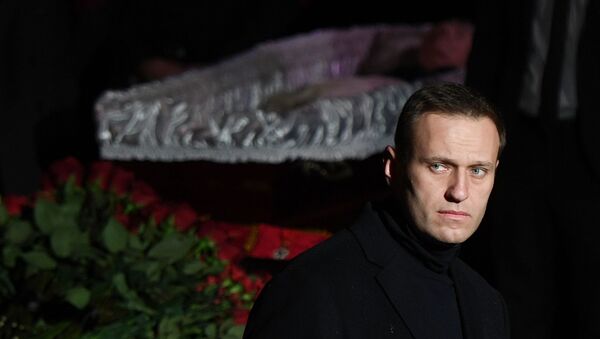The Russian ambassador to Germany on Friday stated that claims of Moscow being in some way complicit in the situation with Navalny are improper.
"[Claims that Russia] is somehow connected to this incident … are absolutely improper," the ambassador said.
The diplomat also called for "refraining from preliminary estimates and relying only on facts."
At the same time, according to presidential spokesman Dmitry Peskov, the Kremlin hopes for a dialogue with Germany on the substance allegedly found in Navalny's body.
"Based on the statement of German chancellor and other officials, we know that German specialists found some toxic substances. In this case, we are expecting a dialogue with German colleagues and hope to get information about what kind of substance it is," the spokesman told reporters
Peskov stressed that Moscow had been open about Navalny's situation from the beginning.
On Wednesday, Berlin claimed that a German military laboratory possessed undeniable proof of 44-year-old Navalny's poisoning with a nerve agent from the Novichok group.
Responding to the claims, Russian Foreign Ministry spokeswoman Maria Zakharova noted that the German government's position lacks evidence, and added that it was perplexing why Berlin first addressed the EU, NATO and third parties, such as the Organisation for the Prohibition of Chemical Weapons (OPCW), in relation to the case, instead of contacting Russia directly.
On 20 August, Russian opposition figure Alexei Navalny fell gravely ill during a domestic Russian flight. Following an emergency landing in the Siberian city of Omsk, he was taken to a local hospital and, according to regional doctors, he arrived just 17 minutes after landing.
For the next 44 hours, doctors waged an uninterrupted struggle for his life, as he went into a coma and was put on an artificial lung ventilator.
Immediately after Navalny fell ill, his spokeswoman Kira Yarmysh claimed that he might have been poisoned.
On 22 August, Navalny was flown to Berlin for further treatment. German doctors claimed that they had found traces of a substance from the group of cholinesterase inhibitors in his body, which the Russian doctors denied, referring to his test results.



